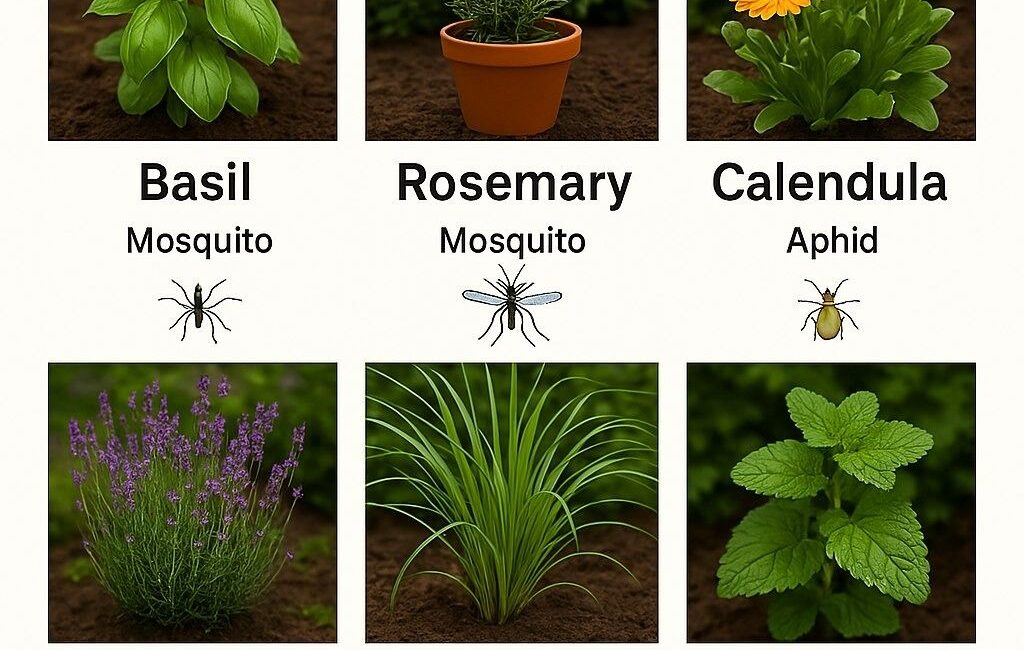Plant along walkways or in sunny spots.
Hang dried bundles indoors or place in sachets in drawers.
Rub the crushed flowers on the skin as a light repellent.
5. Lemongrass (Cymbopogon citratus)
Repels: Mosquitoes
Lemongrass is the plant behind citronella oil, a key ingredient in many insect repellents. The plant itself, when brushed or bruised, releases strong citronella compounds.
How to use:
Grow in pots (especially in colder climates where it’s not hardy).
Trim and crush the blades occasionally to maximize scent.
Use in teas and Southeast Asian cooking.
6. Lemon Balm (Melissa officinalis)
Repels: Mosquitoes
Part of the mint family, lemon balm has a refreshing citrus aroma that mosquitoes dislike. It contains citronellal and geraniol, both powerful natural repellents.
How to use:
Plant in partial shade (it can tolerate full sun in cooler areas).
Use leaves fresh in teas and salads.
Rub leaves directly on the skin for a short-term barrier.
🍃 Row 3: Strong Scents and Versatile Uses
7. Peppermint (Mentha × piperita)
Repels: Mosquitoes, ants, spiders, and flies
The potent menthol in peppermint gives it a strong aroma that deters multiple insect species. It’s also mildly soothing on insect bites.
How to use:
Grow in containers (mint spreads aggressively).
Place near doorways or seating areas.
Crush leaves and apply to pulse points for a natural repellent.
8. Thyme (Thymus vulgaris)
Repels: Mosquitoes and garden pests
Thyme produces thymol, an oil shown to offer mosquito protection comparable to synthetic repellents. Lemon thyme is particularly effective due to its citronella-like scent.
How to use:
read more on next page
ADVERTISEMENT

